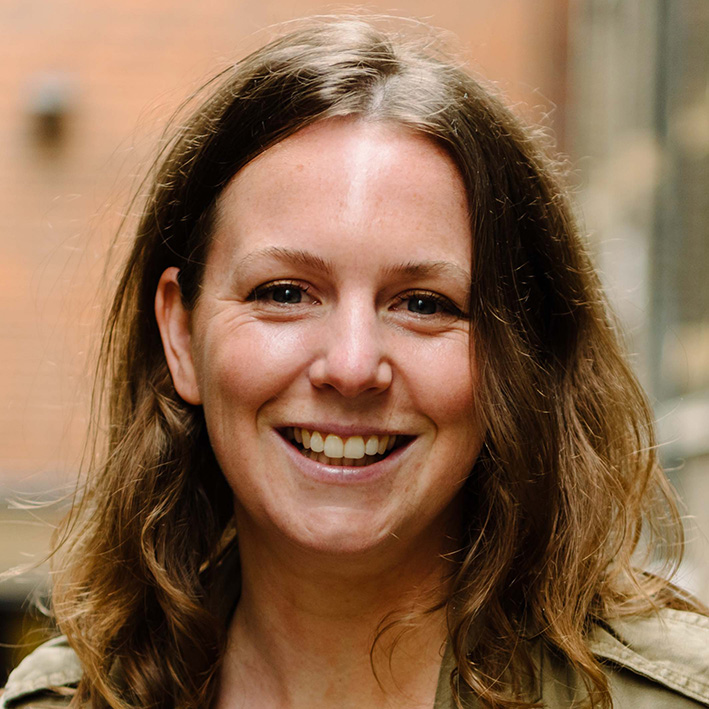Don’t let social and economic instability rock your media plans

Opinion
After Covid-19, shorter-term bookings, campaign movements and deferment became the norm. But there’s a new kind of agility and power in committing longer term.
With apologies to anyone having a bad day or on a long-term mission to bury their head in the sand — and I wouldn’t blame them for it — there is no denying we live in volatile times.
The headlines have been dominated by everything from wars and elections to global IT outages and cost-of-living crises. Political, economical and social instability has come to define this period. And we can’t even escape into our jobs because, as with every major world event, the butterfly effect is impacting every corner of our lives.
When it comes to media planning, things have been decidedly altered since 2020, when media owners were forced to devise a wholly new way of working for advertisers and agencies not used to considering their above-the-line (ATL) advertising in the context of speed and agility.
For businesses going through critical change — and that’s most of the startups and scale-ups that make up my client base — the key focus is driving business results with speed and agility. That’s something that traditional ATL media has been anything but — not only in how it’s planned, but how it’s booked and when, and how (or whether) it can be moved16x9 media, paused or cancelled.
New way of working
Once, there was a general confidence that, whatever else happened in the world, nothing would give clients cause to cease advertising.
But as regular advertisers left in their droves and uncertainty was rife amid Covid-19, this forced the market to disrupt and catch up with the minority that was already focused on this way of working.
Media owners were forced to implement what Wake The Bear had been fighting for as standard in order to bring cautious advertisers back to ATL media or tempt new ones in as their sales numbers plummeted.
The result was that they filled empty slots — ironically, particularly in the case of TV, slots that were suddenly seeing a whole new audience of ABC1s tuning in during the working day for the first time in a while. And brands that wouldn’t normally have been able to get a look-in during peak hours could enjoy testing the response to a new strategy.
With less certainty that spend would be forthcoming, suppliers were more reactive with their offers, while the option for greater agility meant more businesses could commit to affordable, ad hoc placements and could move spend more easily. This helped everyone not used to agile working — by which I mean not just short-term media or thinking, but about the ability to move freely too — muddle through.
Different kind of agility
Four years on, the way many advertisers think about ATL has not changed to pre-Covid ways of working. There remains an expectation for shorter-term bookings, campaign movements and deferment. A little like when people are only working two days in the office, there is a reluctance to get people back in full time as a new normal has been set.
And while it might seem like brands are having their cake and eating it, with media owners bending over backwards to accommodate, the current arrangement is not optimum for anyone.
Instead, agencies should be taking advantage of the new opportunities that exist. By working with a brand to grow its tolerance for media investment — through focusing on measurement and attribution as well as business metrics that matter, and by working with clients to ensure stakeholder alignment on the power of ATL media — agencies are able to empower more cautious advertisers to have greater confidence to think about the next six months or beyond.
If you can help a business have that confidence to know their marketing budget and focus on a longer period of time, you can engage the media owners to the client’s advantage and often generate significantly more value.
Don’t forget, media owners have also seen the impact of social instability and lack of advertiser commitments. This type of agility in committing earlier and longer is now reaping rewards for some advertisers, which are getting better rates and placements.
Playing the market
Despite Covid being now only a memory, we’re still in a very volatile world and businesses going through critical change will also live in a world of uncertainty, meaning agility is essential.
Agile thinking means that when there is an opportunity to play the market for a competitive advantage for clients, you must take it. Upfront commitments with media owners not only offer more value from brands’ financial investments, but they also retain agility with options to shift spend between months and change where that investment sits depending on the business goal, whether that’s from OOH to radio or performance TV to data-driven VOD.
By implementing deals with media owners that incorporate some agility, perhaps in time frame or portfolio, agencies and more importantly clients will find calmer waters and greater stability.
 Kathryn Bean is head of media at Wake the Bear
Kathryn Bean is head of media at Wake the Bear




